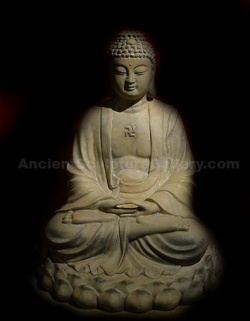Traditional Chinese Funeral Arrangements
On the passing away of the father, the eldest son becomes the head of the family. If the eldest son passes away, his second brother does not assume leadership of the family. Leadership passes to the eldest son of the eldest son or the grandson of the father. He must assume the responsibilities and duties to the ancestors on behalf of the family.
There are two main traditions that are observed:
1. The funeral ceremony, which traditionally lasts over 49 days, the first seven days being the most important. Prayers are said every seven days for 49 days if the family can afford it. If the family is in poor circumstances, the period may be shortened to from 3 to 7 days. Usually, it is the responsibility of the daughters to bear the funeral expenses. The head of the family should be present for, at least the first and, possibly the second, prayer ceremony. The number of ceremonies conducted is dependent on the financial situation of the family. The head of the family should also be present for the burial or the cremation.
2. In the second tradition, the prayer ceremony is held every 10 days. The initial ceremony and three succeeding periods of ten days until the final burial or cremation.
After 100 days a final prayer ceremony is conducted, but such a ceremony is optional and not as important as the initial ceremonies.
In the Mahayana tradition of Buddhism, to which most Chinese Buddhists subscribe, it is believed that between death and rebirth there is an intermediate period – called Antarabhava in Sanskrit, or the Bardo in Tibetan. It is an important period which has an influence on the form that the rebirth shall take. If the family ensures that proper assistance in the form of prayer and remembrance ceremonies are duly performed, the departed is better able to take a favourable rebirth.
